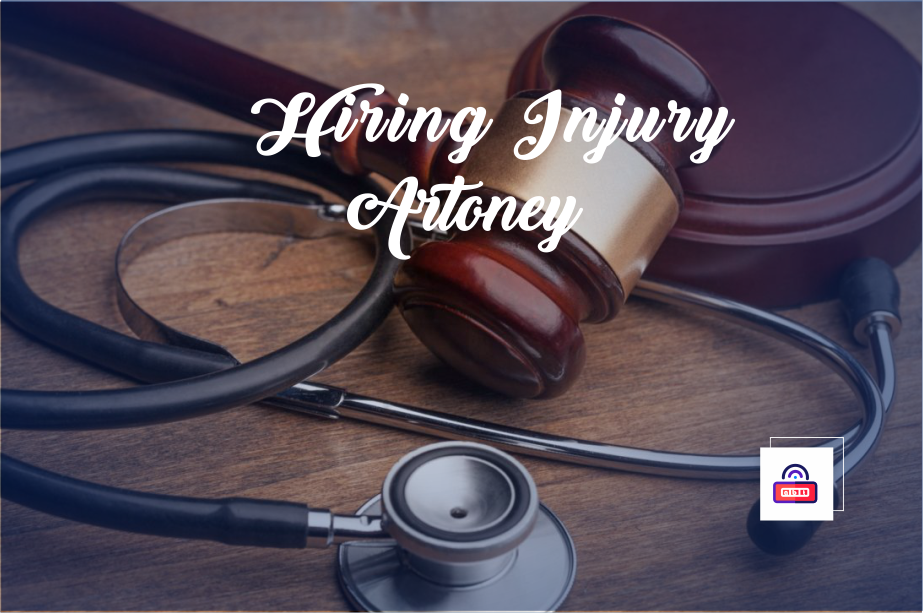The last thing injured victims anticipate after an accident is a serious financial hardship. However, automotive accidents can cost a lot of money to repair. However, retaining an injury attorney can greatly cut down on your losses in the event of an accident, injury, or claim connected to an injury.
This book will outline all the important details of filing a personal injury claim, will cover the costs involved, and will provide you all the information you need concerning situations where hiring a personal injury attorney is vital. To have a clear image of how things are handled, let’s start from the very beginning.
How do personal injury lawsuits work?
Despite the fact that accidents are quite regular, when you or a loved one is hurt, you may have many questions about what a personal injury claim is all about. After an accident, taking action to preserve your legal rights could only cause you to have more questions about making a personal injury claim.
Legal disputes that develop when someone is harmed as a result of an accident or injury and another party is at fault are referred to as “personal injury cases.” The liable person’s insurance provider will cover all medical fees, pain and suffering, and other ongoing medical costs. Your lawyer will collaborate with the hospital’s lawyers and the insurance company’s lawyers in cases involving medical misconduct.
You can formally present your personal injury case in court by engaging an accident attorney. Others may be adjudged to be legally responsible during this court proceeding by a court decision, or, as is more often, they may be resolved through an informal settlement before a lawsuit is filed.

When an automobile accident causes injuries or property damage, one of two things is likely to happen:
Formal Lawsuit
A formal personal injury case typically starts when a private person files a civil complaint against another person, business, corporation, or government agency (the “defendant”) alleging that they acted negligently or carelessly in connection with an accident or injury that caused harm.
Unlike criminal cases, which are started by the government. Understanding how to file a lawsuit is made extra simple by our discussion of negligence and proof.
Unofficial Agreement
Most accidents and injuries are settled informally and quickly, typically between the parties involved, their insurance companies, and the attorneys for each side. Negotiation is frequently what results in a formal agreement wherein both parties consent to forego further action (such as filing a lawsuit) and instead agree to settle the dispute for a predetermined amount of money.
A lawsuit or an informal settlement can both be used as forms of alternative dispute resolution, such as mediation or arbitration.
Type of Evidence Required
Just like in any other legal action, proof is the foundation of personal injury claims. Without offering any supporting information, one cannot just assert that they were injured or that their medical bills reach $100,000. As a result, it is essential to document everything along the way.
It is advised that you start compiling evidence of your injuries as soon as possible. Make copies of all your paperwork, take as many pictures as you can, and see a doctor as soon as you can.
Medical bills, pay stubs, and other paperwork serve as evidence of the costs incurred in treating your injuries.

What About Compensation?
Since dealing with injuries, treatments, and even pain and suffering costs can be expensive, the main goal in a personal injury case shouldn’t be financial gain but rather avoiding financial disaster. All present and future medical expenses related to an individual’s injury will be their responsibility if they choose not to exercise their right to compensation and do not have additional health insurance.
An injury settlement pays for the medical and healthcare costs incurred throughout the legal action. The lawyer is also paid out of these funds. Any leftovers are distributed to the victim. This amount is determined by the settlement amount and the sum of the other elements.
Engage a personal injury attorney
Personal injury claims are always challenging, in large part because insurance companies are driven to maximize their profits. Therefore, hiring a personal injury lawyer is your best bet if you were hurt as a result of someone else’s carelessness.
Without an attorney’s help, injured people can deal with insurance companies directly. Nevertheless, due to the tens of thousands of cases they handle each year, personal injury attorneys are authorities in this area.
In fact, it has been demonstrated that clients of accident attorneys frequently earn better settlement sums than those who attempt to negotiate on their own.
Conclusion
You can always schedule a free, no-obligation consultation with a lawyer whenever you are unsure of what to do. Your injury attorney will review your case and address any inquiries you may have at this appointment. Then, without being held responsible, the wounded party and the attorney can decide what to do.
SOURCE: Hurt511 Blog




